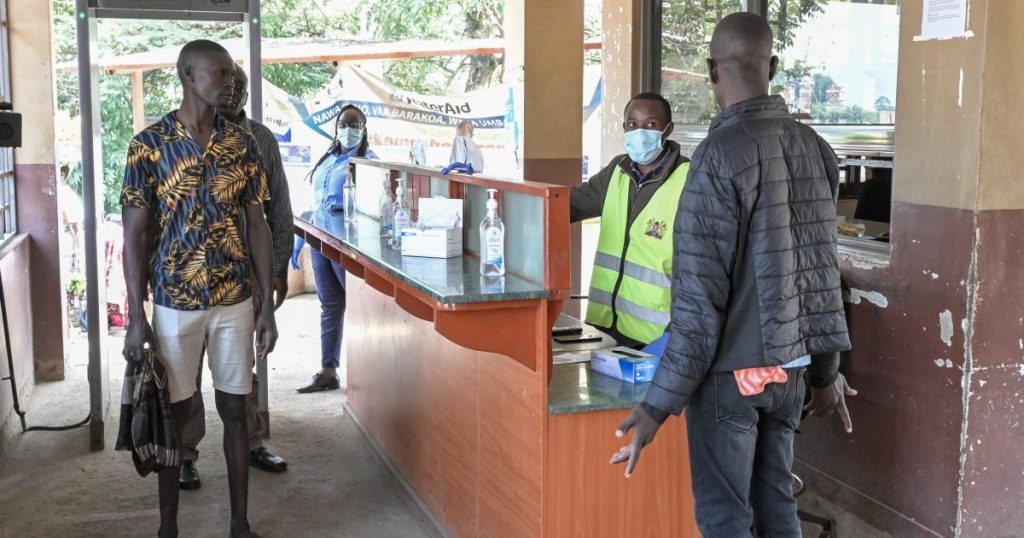Businesswoman Mary Malisi regularly crosses the Kenya-Uganda border for work, purchasing grain from markets in Uganda for her hotel in the border town of Malaba. The bustling town of Malaba is filled with people of different cultures and nationalities, serving as a key transit point for over 2,000 trucks daily, making it the busiest route among East African countries. However, concerns arose when a new strain of the mpox virus known as Clade 1b was declared a global health emergency by the WHO, with the first case recorded at the border.
The mpox virus, primarily affecting the Democratic Republic of the Congo, has spread to neighbouring Burundi, Rwanda, Uganda, and Kenya, infecting over 19,000 people with a high mortality rate. First detected in the gold mining area of Kamituga in South Kivu province, the virus is rapidly spreading, posing a significant health threat. Medical teams in North and South Kivu provinces are grappling with the disease, complicated by security challenges and the presence of armed groups in the region.
Widespread displacement due to ongoing conflict in the DRC has further exacerbated the situation, with millions living in overcrowded tents lacking basic necessities like water and sanitation. Families like Ayona Munyakazia’s are struggling to protect themselves from mpox, following health officials’ instructions to avoid close contact. Limited access to essential resources in displacement camps heightens the risk of disease transmission, making prevention efforts challenging for medical aid agencies like Medair.
The mpox outbreak in Africa has raised concerns among health experts about the need for a coordinated response to prevent the virus from becoming a continent-wide crisis. With cases reported in numerous African countries, including Burundi, the need for heightened awareness and training for healthcare workers is crucial. Delays in vaccine distribution, bureaucratic processes, and funding constraints have hindered efforts to contain the spread of mpox, highlighting the need for a focused and efficient response to address the evolving nature of the virus.
Dr. Samoel Ashimosi Khamadi of the Kenya Medical Research Institute emphasizes the importance of prioritizing vaccine distribution in Central and West Africa, where the virus is most prevalent. The rapid mutation of mpox coupled with limited resources pose challenges to tracking and understanding the virus, warranting a collaborative approach across regions and continents to control and eliminate mpox globally. The WHO regional director for Europe underscores the critical importance of a coordinated global response to prevent further outbreaks of mpox.
Despite fears about mpox, life at the Kenya-Uganda border region continues as usual, with discussions on how to protect against the disease becoming more prevalent. People like Mary Malisi continue their cross-border activities, balancing the economic benefits of cheaper prices in Uganda with the potential health risks. As individuals and communities brace for the potential tide of another outbreak, the need for vigilance, education, and coordinated action remains paramount in tackling the evolving threats posed by mpox.













